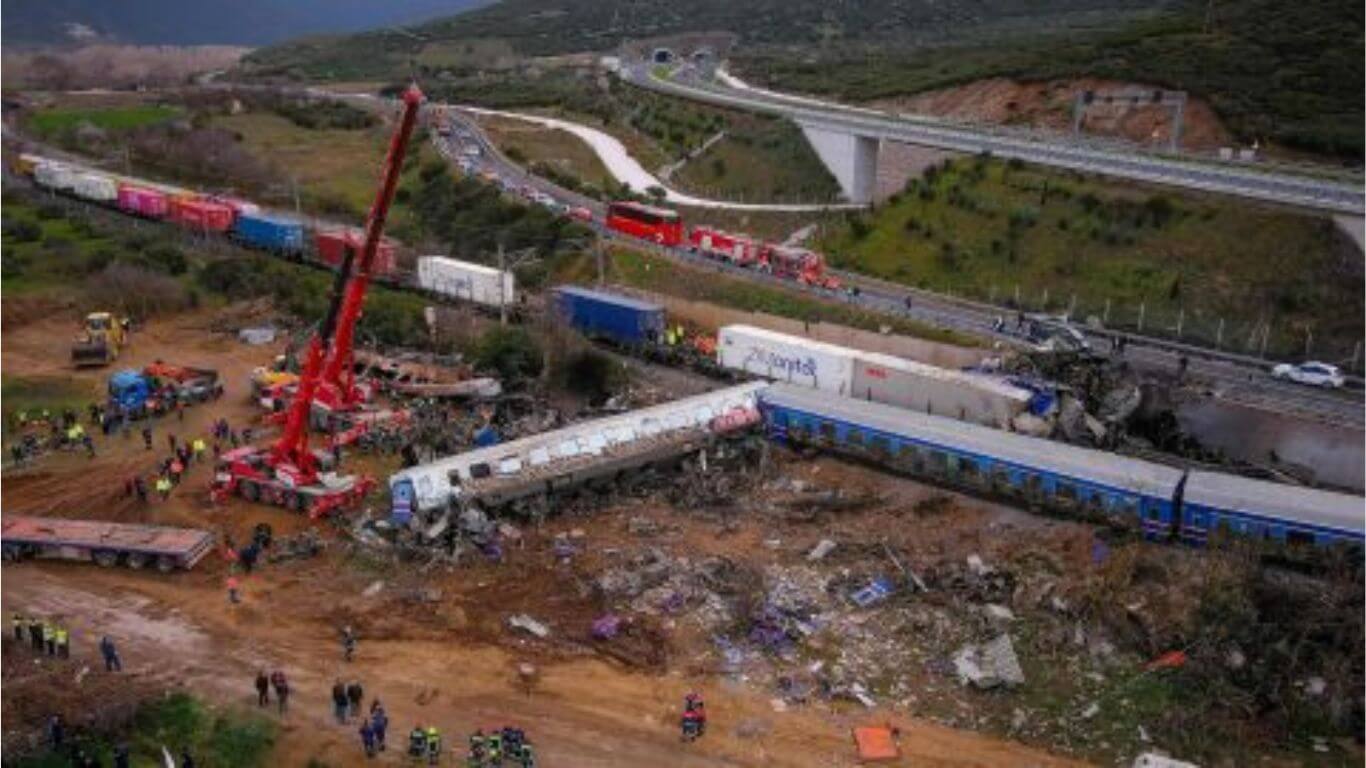
Hundreds of Greece employees took a day off work on Thursday and protested in the heart of Athens, alleging that lax safety regulations contributed to the country’s deadliest train accident, which claimed 57 lives on February 28.
As workers joined the 24-hour strike called by Greece’s two largest labor unions, GSEE and ADEDY, flights into and out of Greece were grounded, ships stayed moored at ports, and public services and state schools were closed.
The walkout is the most recent in a string of demonstrations that have taken place since a passenger train carrying more than 350 passengers, mostly university students, collided head-on with a freight train close to the city of Larissa in the Tempi area of central Greece.
The conservative administration and the nation’s political system are accused by protesters of ignoring repeated union complaints about inadequate safety precautions in the railway.
It was criminality, not human error, according to a sign raised by demonstrators during a peaceful demonstration outside the Athens parliament. “Our dead, your riches,” read another one.
The government, whose term expires in July, has acknowledged shortcomings brought on by neglect and underinvestment, which are a result of Greece’s ten-year debt crisis, but it has primarily attributed the crash to human error.
Four railroad employees have been detained and charged with endangering lives by interfering with public transportation.
After the accident, rail workers have gone on continuous strikes in protest, calling on the government to take measures to restructure the industry.
From March 1, passenger and freight services have been suspended. On Thursday, urban transportation was also hampered by work stoppages by metro employees and a walkout by taxi drivers.
COMMUNITY OUTRAGE
At the main train station in Athens, people left floral arrangements and candles.
“We want safe rails that operate,” the leader of a railway employees union Nikos Tsikalakis told state television.
The government has established a commission that is also looking into the case, and there is also a legal investigation underway into the crash. Unions urge an immediate and in-depth examination of the crash’s causes.
“We will not permit a lack of openness, a cover-up, a renunciation of obligations, and any delays to lead to oblivion,” the private sector union GSEE declared in a statement.
The accident has sparked popular indignation against successive governments that have delayed plans to implement safety devices throughout the nation’s 2,500 km (1,550-mile) rail network during the previous ten years.
The largest street protests the government has encountered since it was elected in 2019 took place last week in Athens and other Greece cities, drawing tens of thousands.
“The offenders must pay regardless of their status,” stated a billboard by the public sector union ADEDY.
The crash has been apologized for, and Prime Minister Kyriakos Mitsotakis has pledged to improve the training industry with assistance from the European Union by hiring more workers. He also urged demonstrators not to let their rage splinter society.
Theodoros Dokos, a 33-year-old cab driver, said: “Measures should have been taken a long time ago and (they should not be) waiting for an accident to happen to take them. No matter what the measures are, the people’s suffering is not alleviated.








